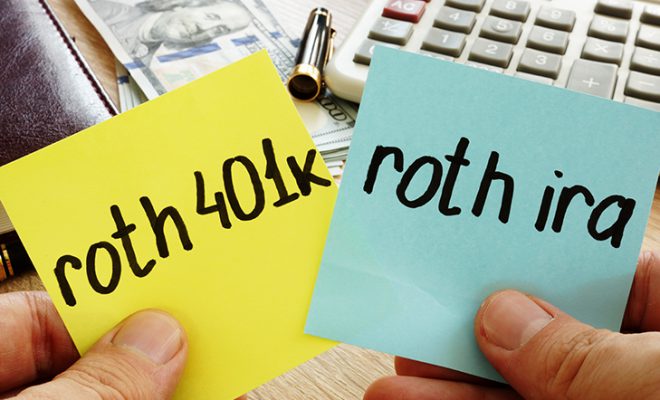Here’s All You Need to Know About the Supplemental Executive Retirement Plan (SERP)

A company is made up of different employees. Some are fresher trainees, just starting out their careers, and some are high ranking officials with years and years of experience. Every company has a different set of regulations while dealing with different categories of employees, based on their qualifications, departments, time spent in the company, salary, etc. While all employees may get regular retirement accounts from their employer, some lucky ones also get additional perks, apart from the regular 401(k) account. These special benefits are offered in the form of supplemental executive retirement plans.
Table of Contents
What are supplemental executive retirement plans?
Regular retirement plans like 401(k) accounts fall under supplemental retirement plans, while the extra benefits that are given to only a fraction of employees in a company are called supplemental ‘executive’ retirement plans or SERP. These executive plans are very different from regular retirement plans as you can withdraw these funds before you turn 59½ years old, without having to pay any additional taxes or penalties. You also don’t need to make required minimum distributions when you hit 70½, which means that you get to keep your savings intact and use them at a later stage in life. In technical terms, SERP is a non-qualified plan, and hence, falls outside the rules that other qualified retirement plans are bound by. SERP is often linked to the employee’s as well as the company’s performance and can, thus, vary. It also depends on the discretion of the employer to decide who qualifies for SERP.
What are the components of a supplemental executive retirement plan?
The extra perks of the supplemental executive retirement plans are typically offered along with life insurance, health insurance, as well as stock options, to only some employees of the company. The company determines the value of SERP, but it is usually linked to factors like the employee’s tenure, metrics of the employee, performance of the employee across the tenure, as well as other benchmarks.
In case the employee doesn’t perform up to the mark by the time of his/her retirement, the company may also refuse to let them cash out their SERP.
The employer generates the funds for SERP either through regular cash flow or via an insurance policy in the name of the employee. This policy can be cashed out at the time of the employee’s retirement. The funds can be cashed-out in either monthly disbursements or a one-time lump sum amount, as per the employee’s will.
How does a supplemental executive retirement plan work?
SERP is a way for a company to reward its most hard-working, trustworthy, and reliable employees. The plan functions over and above the standard retirement or pension plan offered by an organization. SERP can be described as an added incentive rather than a qualified benefit. Typically, when a company offers an employee a SERP, the two sign a mutual agreement. The company agrees to pay a certain sum to the individual as additional retirement benefit, while the employee agrees to meet certain targets for the company. The account acts as a tax deferred account so the individual pays the tax on the accumulated funds on withdrawal. However, if the employee fails to deliver the desired performance, the company has the right to withhold the funds in SERP.
Who is eligible for the supplemental executive retirement plan?
A company is in no way obligated to offer SERP to all employees. In most offices, the plan is generally offered to CEOs, CFOs, COOs, other C-suite employees and high-level ranking officials. It is also up to the company to offer these benefits to as many people as they want. There is no maximum or minimum limit. The tenure of the employee with the company plays a crucial role in the decision, but many times, high-ranking employees are able to secure an executive retirement plan through negotiations. There are also some Internal Revenue Services (IRS) rules that companies have to follow while selecting employees for SERP. Any employee who has a 5% or more stake in the company, or earns more than $120,000 annually is not eligible for SERP. These highly compensated employees usually receive other plans in place of SERP.
What are the benefits of a supplemental executive retirement plan?
A supplemental executive retirement plan is a tax-deferred plan with high returns. Employees are only taxed after they start withdrawing funds from SERP. In case an employee opts for monthly SERP distributions, each monthly installation is taxed separately. On the other hand, in case of a lump sum withdrawal, the entire amount is taxed in one go. In case employees hit the limit for their regular retirement plans sooner than estimated because of their high compensations, they can be offered SERP as an additional plan to increase their savings for retirement.
What are the potential drawbacks of a supplemental executive retirement plan?
Since SERP is a non-qualified benefit that the company is not obligated to offer all employees, these plans have certain drawbacks as compared to regular retirement accounts. These funds are not protected in scenarios where the company is low on funds or goes bankrupt.
Supplemental executive retirement plans also come with some special rules of their own that may be unique to every company. For example, in order to avail the benefits of such a plan, an employee needs to work with the company for a specific tenure. The value of these plans is also linked to particular benchmarks that can change over the course of time. For instance, a well-performing employee may fall short of delivering quality work in the future. The employer has the authority to annul an employee’s SERP in such situations.
How to use a supplemental executive retirement plan
A SERP can be a very effective retirement strategy. The plan can aid employees in their future savings. Other retirement accounts like the 401(k) account and the individual retirement account (IRA) has yearly limitations when it comes to contributions. As of 2020, a person under the age of 50 can contribute only $6,000 to an IRA in a financial year. The limit is $7,000 for people over the age of 50. The contribution limit for a 401(k) account was increased to $19,500 this year with an additional $6,500 catch up contribution limit for employees over the age of 50. If a person has maxed out their IRA and 401(K) account contributions, turning to SERP can be a great way to build their future corpus.
In addition to this, if the company offers SERP as an insurance plan, the employee’s family can benefit from the plan in the case of an unfortunate incident, resulting in the employee’s death. The money in the account can be used as an insurance claim and can be helpful to families in tough times.
How to get a supplemental executive retirement plan
Since organizations do not offer SERP to all their employees, it depends on the sole discretion of the company who they want to offer the plan to. There is nothing special that an employee can do to get the plan. People who want to benefit from such a plan should aim to work hard and reach the top ranking positions within a company. Entry level and mid level employees may not ever qualify for a SERP, so being mentally prepared is essential and one should focus on building their retirement wealth by other means. But if an employee is offered a SERP, one should carefully assess the plan and make sure it fits their needs. It is also vital to understand the plan’s tax implications on overall earnings.
To sum it up
It may seem like a privilege to be offered the supplemental executive retirement plan as a high ranking official within a company but you must know that you still need to back it up with a traditional IRA, a Roth IRA, or a 401(k) account. When accepting a SERP, you must always evaluate the future of the company, your future with the company, and other benchmarks carefully. Undoubtedly, SERPs have better benefits than regular retirement plans, but they are not mandatory or guaranteed. They are also very risky with market fluctuations and economic breakdowns. If your company is hit by the recession, chances are that your employer may annul all SERP accounts to save costs.
Do you have doubts about your company’s supplemental executive retirement plans? Reach out to financial advisors for advice on how to meet your retirement goals with SERP.

















